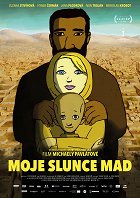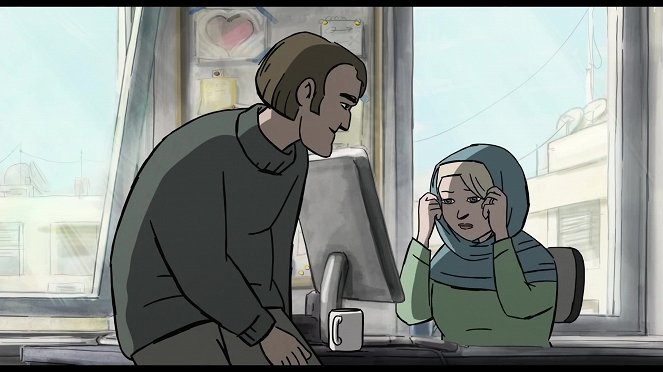Directed by:
Michaela PavlátováScreenplay:
Ivan ArsenjevCast:
Zuzana Stivínová, Hynek Čermák, Ivan Trojan, Miroslav Krobot, Eliška Balzerová, Berenika KohoutováPlots(1)
Getting married is always a big step, but for Helena it marks a fundamental change in her life. She leaves Prague behind and moves with Nazir to Kabul, where she becomes part of a family she has never met. The new world brings much joy, but also difficulties that a European married to an Afghan man must overcome. (Karlovy Vary International Film Festival)
Reviews (2)
It is naturally just a coincidence, but Michaela Pavlátová managed to finish the film and send it for distribution at the ideal time when the dramatic events of the fall of the pro-Western regime fueled by American and European money are still fresh in people's minds. The visual aspect may not be innovative but thank God for that because Czech animated films have been stagnating due to lack of funding for many years. There isn't much to argue against the story, which is based on Petra Procházková's experiences and information gathered from her contacts with Afghan women, except perhaps to note that the scene where Afghan women are running toward freedom en masse is just an illusion. Procházková encountered only a small percentage of women who have been slightly or more Westernized (and not even close to one hundred percent) and desire some Western achievements, and essentially, the vast majority of Afghan women are actually quite content in their comfortable domestic cage. Overall impression: 75%.
()
I still can't get over the fact that such a beautiful animated melodrama was made in my home country. Michaela Pavlátová made My Sunny Maad, basing it on the novel Frišta by journalist Petra Procházková, who has many years of personal experience with the Afghan environment. I was absolutely enchanted by the charming animation, which at times made me feel like I was actually on the streets of Kabul. I was touched not only by the powerful life story about the clash of two cultures, full of love and emotion, but also by the anguished expressions on the faces of the women and the seriously ill little boy called Maad. The rhythmic music of the Arab world certainly contributed to the overall credibility of the film. (90%)
()

